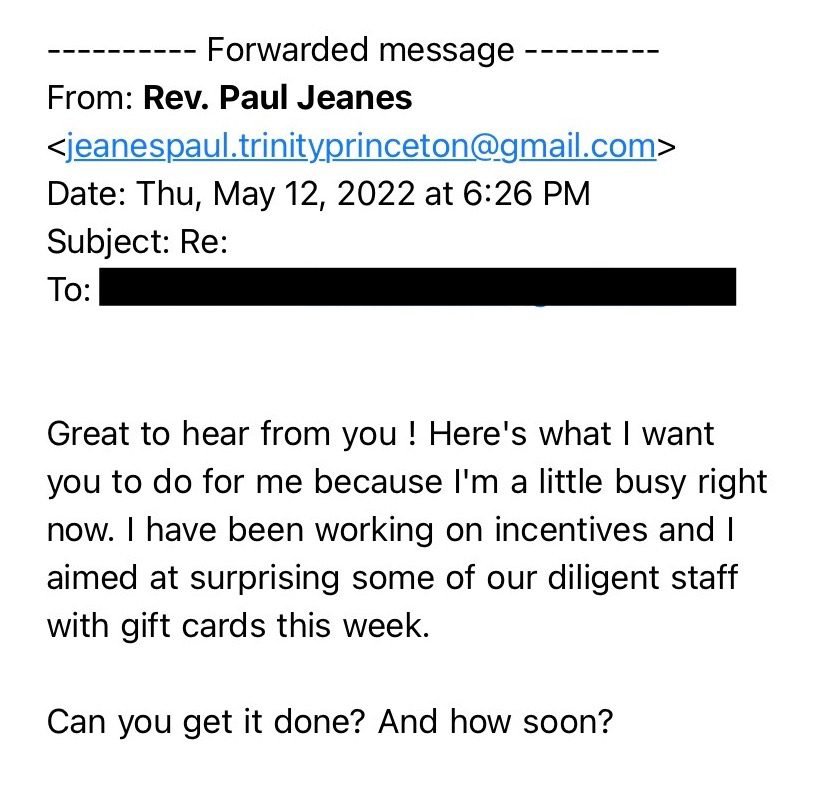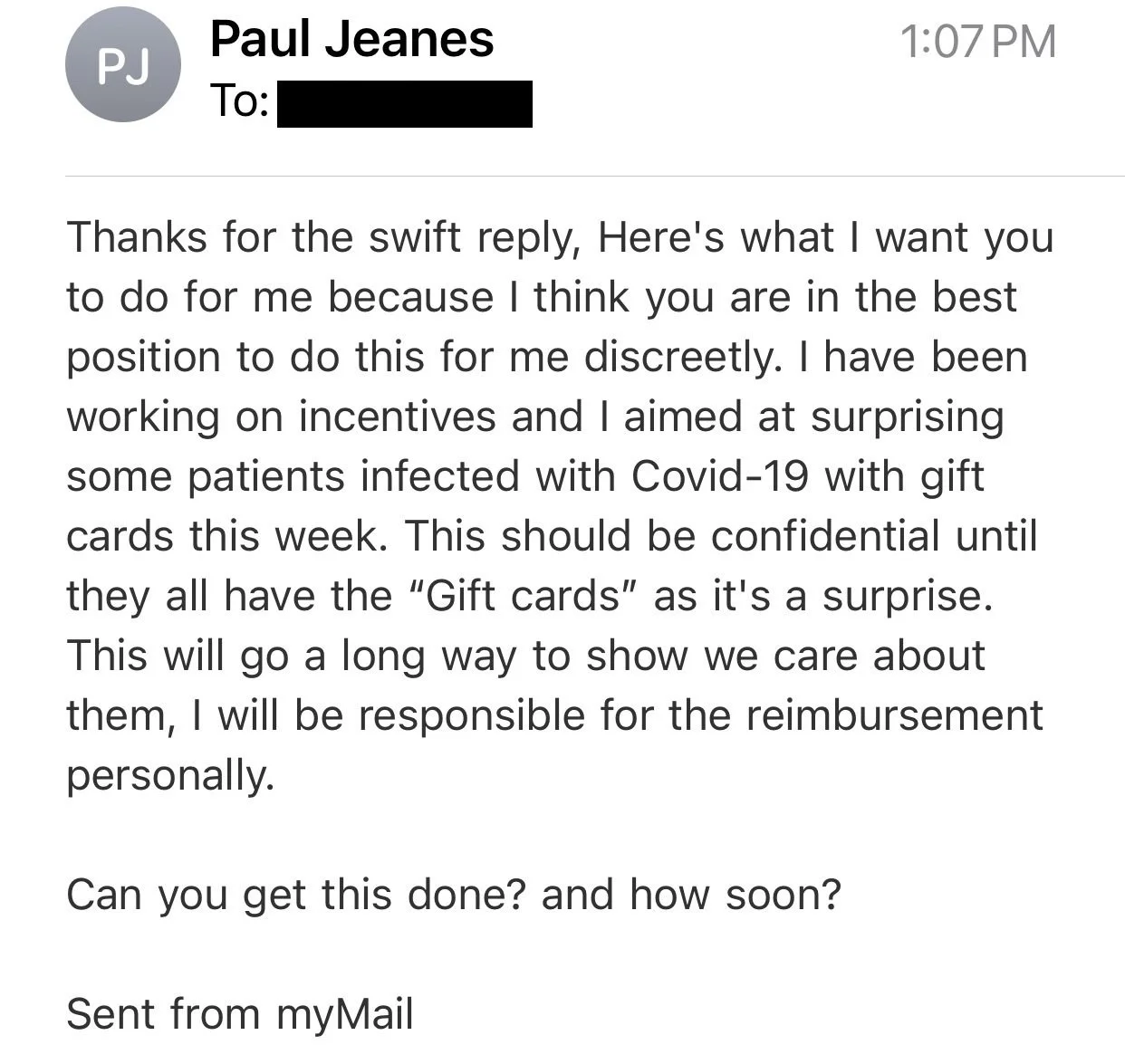BEWARE ‘PHISHING’ SCAMMER EMAILS
Notice how the email comes from an @gmail.com address. You will never receive an email from anyone in the church office that does not come from @trinityprinceton.org.
Notice the awkward syntax and the mistake “Trinity Lutheran Church.” Mistaken grammar and other details are often the first red flags of phishing scams. Often the initial email will be scarce on details, the goal being to get you to reply.
Don’t reply to scammers. However, if you do reply by mistake, the scammer will likely try to solicit gift cards playing on sympathy for someone suffering or in need. There is often an appeal to discretion or confidentiality.
Phishing is the fraudulent practice of sending emails purporting to be from a reputable person or organization in order to induce individuals to reveal personal information, such as passwords and credit card numbers.
Scams that seek to exploit people’s trust may be as old as humanity, but there has never been a more pernicious sophistication or scale compared to the fraud perpetrated online.
At Trinity, we want to be a place that people can trust to have their best interests at heart, but there are countless imposters who are more than happy to exploit that trust.
Periodically, we get reports that members of the congregation have received emails soliciting information, monetary donations, or gift cards while impersonating the Rector, Paul Jeanes. Some are even slick enough that they use the rector’s characteristic closing “Peace & Blessings,” which they’ve clearly culled from publicly available parish communications.
This is not unique to Trinity, this is a common scam targeting churchgoers throughout the nation, as reported by AARP in 2021, and there’s little that we can do to prevent future occurrences, except provide you the tools to be vigilant.
Please be vigilant at all times and check the email address of the sender if an email appears to be from any our clergy, lay leadership, or staff. All personnel will have email addresses @trinityprinceton.org.
Be wary of any emails that appear to requesting donations for charity or fundraising. Do not respond to these emails, do not reply with personal or financial information, and do no click on any links that might be included in them.
We will do our best to warn you whenever there is an uptick in scams like this, but always double check that emails appearing to be from the church or church personnel are from familiar email addresses and not spoof accounts.
How do I know if an email is legitimate?
ALWAYS check that the sender’s email address comes from a @trinityprinceton.org address. Most email clients will conceal the email address and simply display the person’s name, this makes it easier to know at a glance who’s emailing you but can help imposters conceal themselves. On iPhone and in Apple Mail, you can simply click on the sender’s name to reveal the email address. In Gmail, you can hover over the profile picture of the sender to reveal the full email address. You can also hover over the sender’s name in Outlook to reveal the full email address. Other email clients and platforms have similar features.
Will Trinity ever solicit gift cards or donations through email?
You will NEVER be asked to donate money over email. Any fundraising that is mentioned in our digital communications will direct you to the secure donation gateway on our website at trinityprinceton.org/giving or through our Venmo Business account @trinityprinceton. You will NEVER be asked to provide sensitive financial details over email, by text message, or over the phone. If we are looking to collect gift cards for a charitable initiative, we will always collect the physical cards or codes in person at the church office, never over insecure online correspondence.
What should I do if I get such an email?
First, forward the email to our Rector Paul, our Associate Rector Kara, our Office Manager Annie, or our Director of Communication Adam so they can alert the whole parish that a scam is presently underway. Second, do nothing: Do not reply, do not click any links. Third, if your email provider allows you to report the email as spam, do so. Fourth, report the scam to the state government, federal government, and third parties, like your email provider or the email provider used by the scammer. Many scammers use free Gmail Accounts, you can report these accounts to Google. If you have lost money, you should report it to your local police department.






